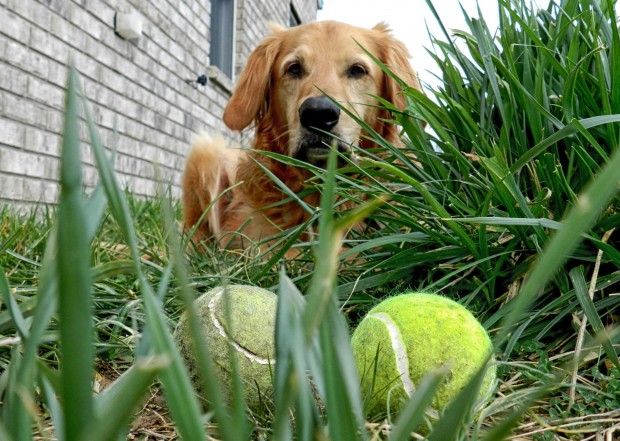 It is officially Fall! This means shorter days, changing leaves, a crisp breeze, football, holidays and food. And with food comes the seasonal weight gain. We seem to find more and more excuses to stay inside our homes as the temperature drops. Add this to the holiday celebrations with the natural tendency to crave comfort food for the colder months, and you have the perfect combination for seasonal weight gain.
It is officially Fall! This means shorter days, changing leaves, a crisp breeze, football, holidays and food. And with food comes the seasonal weight gain. We seem to find more and more excuses to stay inside our homes as the temperature drops. Add this to the holiday celebrations with the natural tendency to crave comfort food for the colder months, and you have the perfect combination for seasonal weight gain.
Overweight pets face many of the same health issues and concerns as people, including: heart disease, type 2 diabetes, bone and joint problems, various forms of cancers, and a shortened life expectancy, just to name a few. Fortunately, with a few simple modifications, you and your pet can avoid the seasonal weight gain.
Regular Exercise
Regular exercise provides many obvious health benefits, but it also provides a great opportunity to bond with your pet. We are fortunate to experience plenty of sunshine in Texas, so getting out there with pets, even in the colder months, can be enjoyable for both you and your pet.
Ideas for exercise:
- Take your pet for a walk or jog in that crisp fall air. Both dogs and humans burn calories at almost the same rate, so you each can benefit equally from a workout session.
- Take your pet on one of the dog friendly trails in your area
- If you don’t want to walk, you can simply tag your dog to a dog park and let him or her burn off that excessive energy among friends.
Watch the Calories
Just like in humans, the foundation of weight loss for our pets is consuming fewer calories than we burn. With the holidays, this means an abundant supply of table scraps for our beloved pets. Therefore, pet owners should be extra wary about what their pets are consuming.
Here is a few weight management tips for your pets:
- Don’t feed your pet table scraps, and make sure no one else does either.
- Only feed your pet high quality pet food
- Avoiding giving your pet too many treats (break treats into halves or quarters to make them smaller)
- If your pet likes vegetables, they can be used instead of treats
- Non-food rewards for your pet, such as attention or playtime are great to avoid those extra calories
Prevention is Key in Weight Management
Often times, the recommended food amounts commonly found on animal food labels are more than a pet actually needs. These guidelines usually only apply to highly athletic and intact animals.
Many people have misconceptions about what a fit dog is supposed to look like. Here is a list of ideal weights for the common breeds of dogs and cats.
Ideal weights for dogs:
- Labrador retriever: 55-80 lbs.
- Golden retriever: 55-75 lbs.
- Yorkshire Terrier: 8 lbs.
- German Shepherd: 70-95 lbs.
- Beagle: 26-31 lbs.
- Dachshund: 16 lbs. or less
- Boxer: 53-70 lbs.
- Miniature poodle: 11 lbs.
- Shih Tzu: 8-18 lbs.
- Miniature Schnauzer: 11-15 lbs.
Ideal weights for cats:
- Domestic: 8-10 lbs.
- Persian: 10-11 lbs.
- Siamese: 5-10 lbs.
- Maine Coon: 11-15 lbs.
All Pets Veterinary Medical Center is committed to helping your pet maintain a healthy weight. Bring your pet in today to have them weighed and receive information on how to keep them healthy this season.
















Bea Green liked this on Facebook.